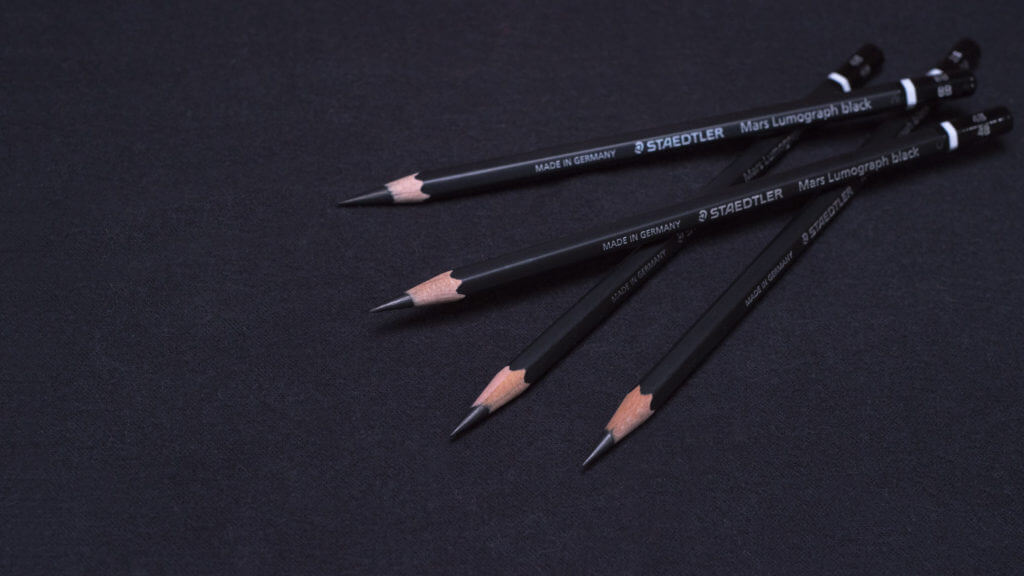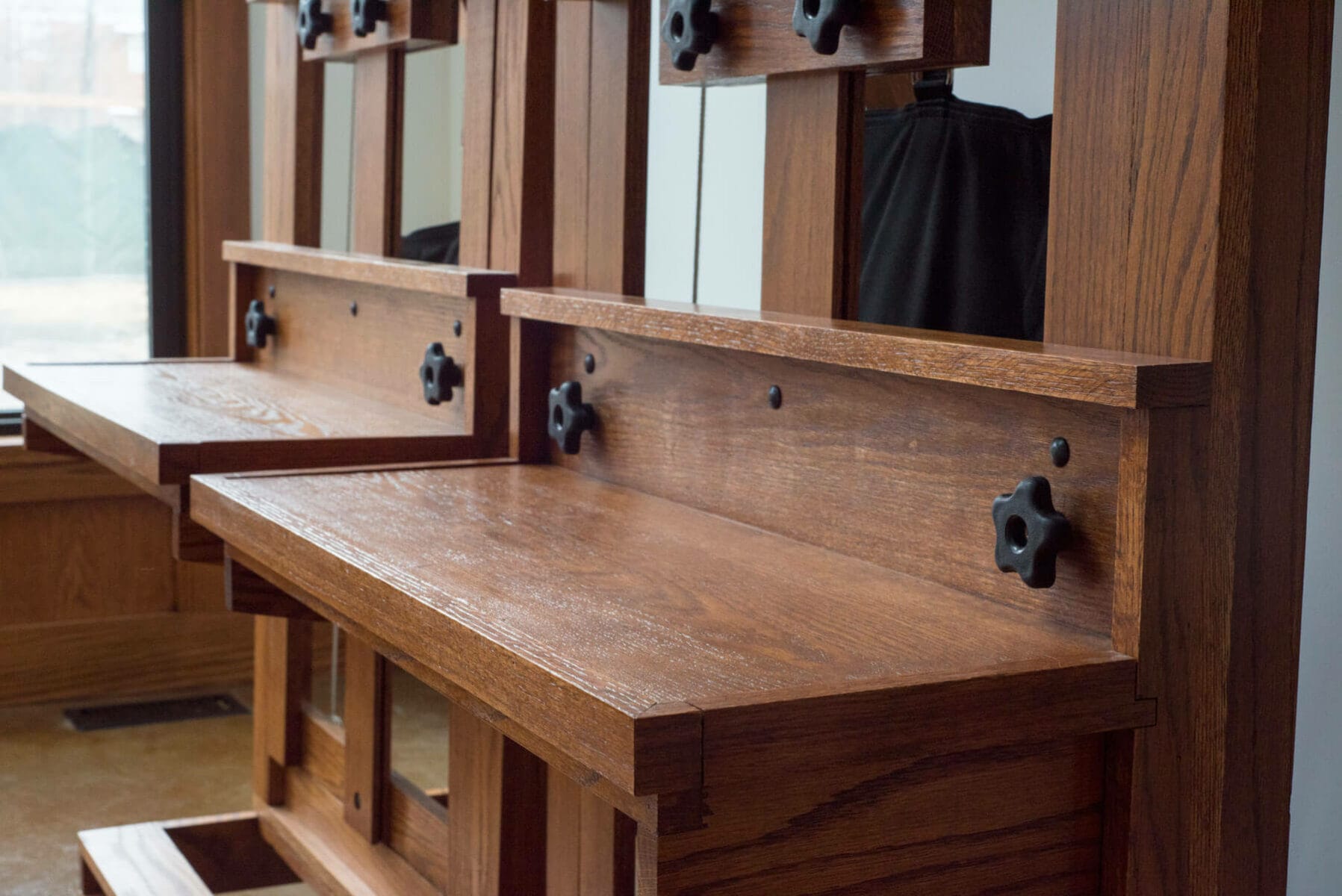You’re Doing It Wrong! How to Overcome “Process Anxiety”

To learn how to draw and paint, you must overcome a unique set of challenges. Mastering the skills required to capture what you see, and finding enough time to practice, are daily struggles for most students. And yet, they’re only half the battle. Perhaps the biggest challenge that you face is getting past your own doubts and fears.
A common fear afflicting beginners is what we call “process anxiety” – that inner voice that says “You’re doing it wrong!” If you’ve spent any significant time trying to improve your studio skills, you’re already familiar with process anxiety. It’s a sinking feeling that constantly nags you as you work. It leads you to second-guess every decision because you suspect your whole approach is somehow “incorrect.”
It’s easy to feel this way when you’re unhappy with your artwork. But even when a drawing or painting is going well, you can start to wonder if it could be even better… if you’d just done something differently.
Process anxiety can be debilitating. It’s hard to move forward if you don’t trust your method, or if you think there might be a better way that you haven’t discovered yet.
The good news is that you can overcome process anxiety. In this post, I’ll share a few tips that I’ve learned over the years for silencing that voice in your head.
[content_upgrade cu_id=”40549″]Here’s a list of 10 strategies to overcome process anxiety.[content_upgrade_button]Click Here[/content_upgrade_button][/content_upgrade]
Why We Experience “Process Anxiety”
Before we discuss solutions, let’s take a look at what causes process anxiety in the first place.
It’s actually pretty simple. Drawing and painting
To make matters worse, historical artists rarely documented their methods. In many cases, we simply don’t know for sure how a particular painting was made, but that doesn’t stop people from speculating. As a result, there is widespread disagreement and confusion in the art community about the basic “how to’s” of drawing and painting.
Amid this uncertainty, and stewing in the cauldron of various online discussion forums, artists tend to argue and stridently defend their preferred methods. Snarky dismissals of alternatives are commonplace and often sound something like this: “I only paint with genuine unicorn tears, just like the old masters did! Everything else is garbage!” or “If your palette knife wasn’t forged in the fires of Mordor, you can’t expect to get quality results.”
If you’re just getting started with learning how to draw and paint, you can quickly feel overwhelmed and confused. Should you try this technique or that? Should you follow this artist’s advice or someone else’s? With so many differing opinions, it’s easy to see how beginners can second-guess their approach and ultimately develop an inferiority complex.
Of course, this problem isn’t exclusive to drawing and painting, but it is perhaps worse than in other fields due to the deep history of art, and the fact that information about the techniques of the past is often frustratingly ambiguous.
How to Overcome Process Anxiety
Process anxiety can paralyze you, but there are ways to overcome it. Here’s how:
Stop Looking for the One “Authentic” Method
It’s common for students to say they want to “paint like the old masters”, but which ones? What we know of historical techniques suggests that they varied widely across centuries and geography. There is no single “old master technique” for making artwork, but a plurality of procedures that have influenced one another and evolved over time.
That variety of approaches survives today. In fact, it continues to multiply as artists embrace new methods and materials, yielding many valid to ways create artwork. So stop trying to find some secret “authentic” method. It doesn’t exist. Instead, pick one that works for you.
How do you do that? Start with these questions:
- What artists do you like?
- Are any of these artists alive today?
- Do any of these artists teach?
If you can find a teaching artist whom you admire, learn as much as you can about his/her approach. Many artists publish books, DVDs, YouTube videos or online courses. Start with one of those and see if it’s helpful. If it is, then try taking a class or workshop with that person and see how it goes. During this time, don’t get distracted by alternative pedagogies. Tune out the noise and focus on what your chosen instructor has to teach you.
Continue Exploring Different Artists and Methods
Even the most gifted artists and teachers can only offer you so much. Eventually, you’ll absorb everything that person can give you, at which point it’s time to move on and find a different teacher.
Just keep in mind that different instructors will likely have different points of view. Don’t panic! Teachers contradict each other sometimes. Again, stay focused and learn as much as you can. If your various teachers’ methods conflict, keep what makes sense to you and reject what doesn’t. Ultimately, you’re in charge of your own development.
If you’re like me, you’ll find your own method of working evolves into a kind of hybrid of what different instructors have taught you. That’s a good thing! Assimilating different ideas and techniques can yield unique results and help your work stand out from the crowd.
Beware of the “Shiny, New Thing” Syndrome
We all know that learning to draw and paint is hard. You should prepare yourself for setbacks and discouragements, because they’re coming. When you experience difficulty, however, don’t fall for the next “shiny, new thing.”
It’s easy to convince yourself that some new materials or studio equipment will help you make your next breakthrough. This is a seductive idea because buying new stuff is fun and easy, but it doesn’t often help.
Nobody, in the entire history of art, improved their skills overnight by switching to a different brand of pencils or a new recipe for painting medium.
If you’re struggling, it’s because drawing and painting are difficult skills to master. But if you stay the course and don’t get distracted, you will make progress.
Find Out What Works For You
One of my drawing teachers, Deane G. Keller, taught his students this simple mantra: “If it works, it’s good.” It was his way of defusing any arguments about procedural “correctness”.
One of the best ways to overcome process anxiety is to adopt this mantra. Find out what works for you and continue doing it until and unless you find something that works even better. It doesn’t matter if it resembles someone else’s process. Instead, forge your own process through study, practice and experimentation. In the end, your artwork will improve in a way that’s uniquely yours.
Final Thoughts
While learning about different methods and materials is an important part of developing as an artist, don’t let it derail your progress. It can be fun and productive, but it can also lead to indecision and process anxiety.
Learn from good teachers, but give yourself permission to do what works for you without worrying so much about what the old masters did. This will help silence that voice in your head so you can focus on moving forward.
[content_upgrade cu_id=”40549″]Don’t forget to download this list of 10 tips to get over process anxiety.[content_upgrade_button]Click Here[/content_upgrade_button][/content_upgrade]







I’ve recently started drawing, it didn’t take much time before it made me realize how amazing it makes me feel. I feel proud, I feel accomplished but most of all… I feel alive, free. Nothing else has ever provided me such joy of living. However things are different now. I still see drawing the same way, but i’m going through more and more anxiety when I think about it. The fear of not improving, the fear of never finding a proper way to start a drawing that would help me not feel lost. I ain’t scared of trying new stuff because I know it will be awful, I am scared of this because I’ve barely been able not to repeat the same mistakes over and over again. I’ve never had any teacher to help me, mostly tutorials that I just couldn’t understand. I do not lack passion, I just have so many questions left unanswered that in the end, I don’t know what to do. Not being able to draw because of anxiety, anxiety because I will never get good if anxiety holds me back, a cycle that I want to break out of more than anything. Tonight i’m getting back to it after weeks of being stuck with this awful mentality. I didn’t lose hope, never will, cause in the end that’s where I feel I belong to.
This invisible barrier of process anxiety today was revealed. My preference is drawing portraits but recently I have been working on an abstract painting to further explore a hidden concept. The discouraging voices have been worse than normal and now after reading this I am thinking it is because my work is involving more uncertainty. Thanks
I’m sorry for the delay in responding to you here, Rachel. I’m glad you found the post helpful. I think you’re right: self-doubt increases when you try new things. I try to deal with this by remembering that even a failed experiment can be a learning experience that ultimately makes you a better artist.
Mil gracias David, excelente artículo, me es de gran utilidad, tu estilo me agrada, y , deseo seguir tus pasos, practico y practico, con tus vídeos y consejos lo lograré. !! Gracias !!
Thank you, Octavio. I’m glad you find it helpful 🙂
I have especially struggled with this for the past 3 years and have been too ashamed to reach out about it. I love that this article relieves a lot of unnecessary pressure with humour but also encourages to just keep trying until we can all find what works best for us, individually.
Thank you soooo much!
You’re welcome, Chipo. I think we all feel insecure about our work from time to time, but there’s no reason to be ashamed. Nobody knows everything. Keep your head down, practice, and try to solve problems one at a time. As your work improves, those feelings of insecurity will slowly retreat.
Excellent post. I’m thinking about how this applies to so much more than art too.
For example, looking to start a business? There’s going to be process anxiety there too. Should you try this marketing tactic, or do what that expert says, or just keep researching more blog posts looking for the magic sauce.
Good stuff.
Great point, Nathan. I can relate to that, too!
Very helpful, thank you!!! How can I get the additional tipps in case I’m already registered?
Markus, I think you can simply enter your email address again in the popup form and it will give you the additional content, even if you’re already subscribed. Let me know if you have difficulty with that.
Your timing was perfect.! Just hearing the subject to be discussed gave me companonship. Because I work alone my mind is not always friendly and supportive. My paintings take a long time to execute so that means I must be even and constant, slow and steady. Not my temperament. Thank you for this subject.
I can relate completely, Harriet. I’m glad you found it helpful 🙂
Good info! It works! Thanks!